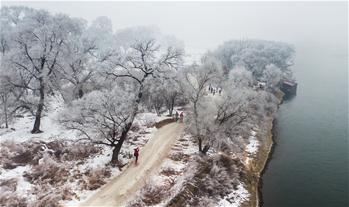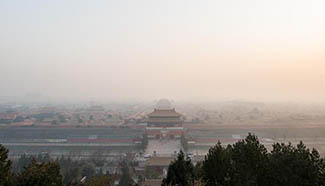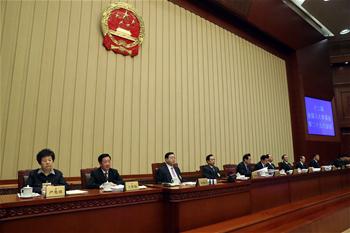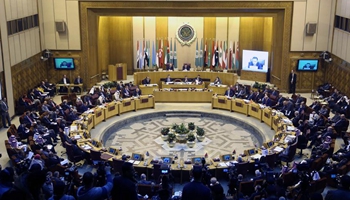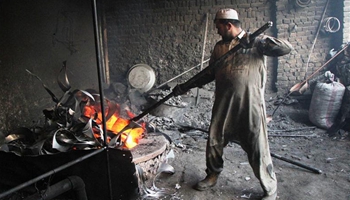BEIJING, Dec. 19 (Xinhua) -- China's top legislature may revise a law to better prevent water pollution by strengthening government responsibility and supervision, according to a draft released Monday.
Local governments should set time limits and make efforts to improve water quality, and will be authorized to issue tougher pollutant control requirements for water quality standards, according to the draft revised version of the Water Pollution Prevention Law, which was submitted to the Standing Committee of the National People's Congress for its first reading.
The draft says county and municipal-level governments should report plans for water quality improvement to higher levels of government and make such plans public.
Environmental monitoring systems will be improved, with self-monitoring obligations for polluting enterprises specified in the draft.
According to the draft, chemical producers, industrial and mining zones, tailing ponds, dangerous chemical disposal sites and landfills shall take efforts to prevent leakage and dig wells to monitor groundwater quality.
Gas stations shall use double-walled underground tanks or build anti-leakage pools to avoid polluting groundwater.
The push to strengthen groundwater protection comes after a number of environmental incidents in China. In April 2014, in northwest China's Lanzhou City, benzene leaked from a pipeline of a petrochemical company, leading to benzene levels in the city's tap water more than 10 times higher than national standards.
The draft strengthens protection of drinking water, stating that emergency response measures and back-up water sources should be set up in cities with single water sources, and the quality of drinking water should be closely monitored and relevant information made public.
Water pollution prevention in key fields, including industrial sewage, groundwater, agriculture and rural areas, as well as pollution from ships, should be strengthened, according to the draft.
The draft imposes tougher punishment, doubling fines for offenses.
The current Water Pollution Prevention Law was enacted in 1984 and amended in 1996 and 2008 and has played an important role in curbing water pollution, said Chen Jining, minister of environmental protection, at the opening meeting of the bi-monthly session of the top legislature.
During the 12th Five-year plan (2011-2015), China's chemical oxygen demand, a measure of organic pollutants in water, dropped by 12.9 percent, and emissions of ammoniacal nitrogen shrank 13 percent, exceeding expectations.
However, Chen said, China still has severe problems with water pollution. The draft is meant to ensure better implementation of a water pollution prevention plan issued by the State Council in April last year, Chen said.
The Ministry of Environmental Protection drew up the draft, which was approved by the State Council.
Also on Monday, lawmakers reviewed a draft environment protection tax law to upgrade the current pollutant discharge fee system into a law that will tax air and water pollutants, solid waste and industrial noise at different rates.
China established its pollutant discharge fee system in 1979. In 2015, it collected 17.3 billion yuan (about 2.5 billion U.S. dollars) from some 280,000 businesses.
However, some local governments exploit the system's loopholes and secretly exempt such fees for enterprises that are big contributors to fiscal revenues.
The new draft law, submitted for a second reading by lawmakers, is targeted at better equipping the country in its fight against chronic and intractable pollution in the coming years.
In particular, the new draft sets tax rates of 1.2 yuan on a stipulated quantity of air pollutants, and 1.4 yuan on a stipulated quantity of water pollutants, and allows local governments to raise rates to up to ten times as much after approval by the people's congresses, taking local economic and pollution conditions into account.
The rates may also be lowered if tax payers' emissions are less than the national standards, the draft said.




